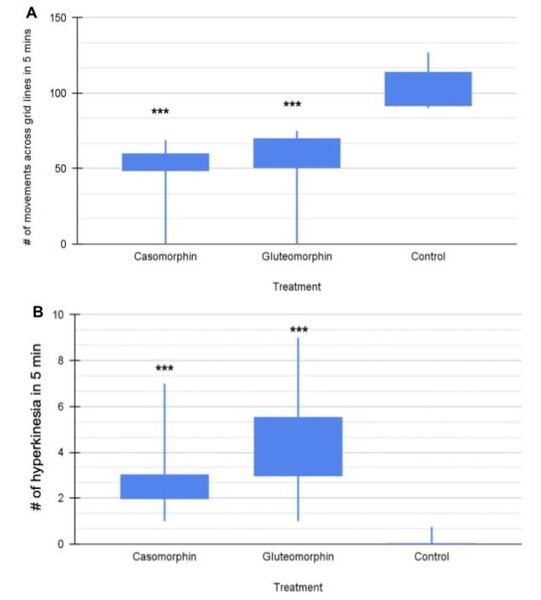Digestion products of bread and cheese cause addictive behavior in a planaria model
(1) Pascack Hills High School
* These authors made equal contributions
https://doi.org/10.59720/22-127
Addiction is defined as compulsive engagement in certain practices despite considerable danger and other harmful consequences. Gluteomorphin and casomorphin are peptides derived from the digestion of bread and cheese and are known to bind to opioid receptors. However, it is unclear if gluteomorphin or casomorphin are addictive in a similar manner to extrinsic opioids such as morphine. Since 75% of the American diet consists of wheat and dairy, the implication of addiction could have a major impact on diet and obesity. Thus, the purpose of this study was to investigate the addictive potential of gluteomorphin and casomorphin in a planaria model. We conducted controlled experiments comparing planaria exposed to water, gluteomorphin, or casomorphin. We utilized light/dark testing, motility, & stereotypical movements to test for acute exposure, withdrawal, sensitivity/tolerance, environmentally placed conditioning, and cross sensitivity with nicotine. Our results from acute exposure, abstinence induced withdrawal, environmentally placed conditioning, and sensitization/tolerance assays suggest that gluteomorphin and casomorphin are addictive. Additionally, results in cross sensitization testing with nicotine were inconclusive and further evaluation is recommended. These findings establish grounds to further investigate the potential addictiveness of gluteomorphin and casomorphin, digestion products of bread and cheese respectively.
This article has been tagged with: